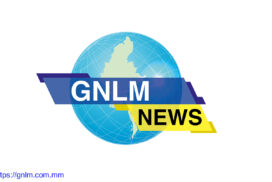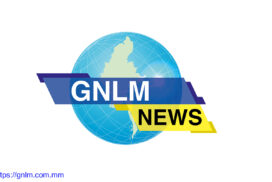The persistent threat of insurgent and terrorist groups engaging in drug production and trafficking poses a significant challenge to national security and stability. These groups exploit the drug trade for financial gain, contributing to a range of criminal activities, including arms smuggling, violence, and money laundering. Furthermore, the proliferation of narcotic drugs jeopardizes global safety and well-being, highlighting the urgent need for concerted action.
Currently, Operation 39/2024 represents a pivotal step in the ongoing battle against drug trafficking and abuse in Myanmar. By prioritizing cooperation, regulation, and rehabilitation, the government aims to safeguard national security, promote public health, and uphold the rule of law. It is imperative that all citizens join hands in this endeavour to secure a safer and drug-free future for generations to come.
Recognizing the gravity of this issue, the government has intensified efforts to combat drug trafficking through a series of operations conducted between 2013 and 2023. Building on these initiatives, Operation 39/2024 is being launched nationwide in 2024 to eradicate poppy cultivation, dismantle refining facilities, apprehend offenders, and seize illicit substances. Synthetic drugs, in particular, pose a significant threat to society, especially young people of global countries, and are a focal point of this operation.
In addition to domestic efforts, the government is collaborating closely with international partners such as the United Nations, neighbouring countries, ASEAN member states, and Mekong regions. This collaboration extends to international organizations like the UNODC, AFP, DEA, NNCC, and ONCB, based in Yangon, to coordinate anti-narcotics activities effectively with government departments and organizations.
Central to the strategy is the regulation of precursor chemicals essential for drug production, requiring heightened vigilance and enforcement measures. Business owners utilizing these chemicals must be educated on relevant laws and regulations to prevent their abuse measures and curb illicit activities.
While law enforcement agencies of the government spearhead narcotic drug eradication efforts, the Ministry of Health oversees addiction treatment facilities and methadone clinics to assist drug addicts in recovery and mitigate associated risks, rehabilitation programmes aim to reintegrate former drug addicts into society through training and support for reunification.
The government views drug eradication as a national imperative, underscored by the establishment of the Central Committee for Drug Abuse Control to oversee comprehensive measures. Collective action involving all sectors of society is deemed essential to confront the challenges posed by drug-related activities successfully.
Currently, Operation 39/2024 represents a pivotal step in the ongoing battle against drug trafficking and abuse in Myanmar. By prioritizing cooperation, regulation, and rehabilitation, the government aims to safeguard national security, promote public health, and uphold the rule of law. It is imperative that all citizens join hands in this endeavour to secure a safer and drug-free future for generations to come.














